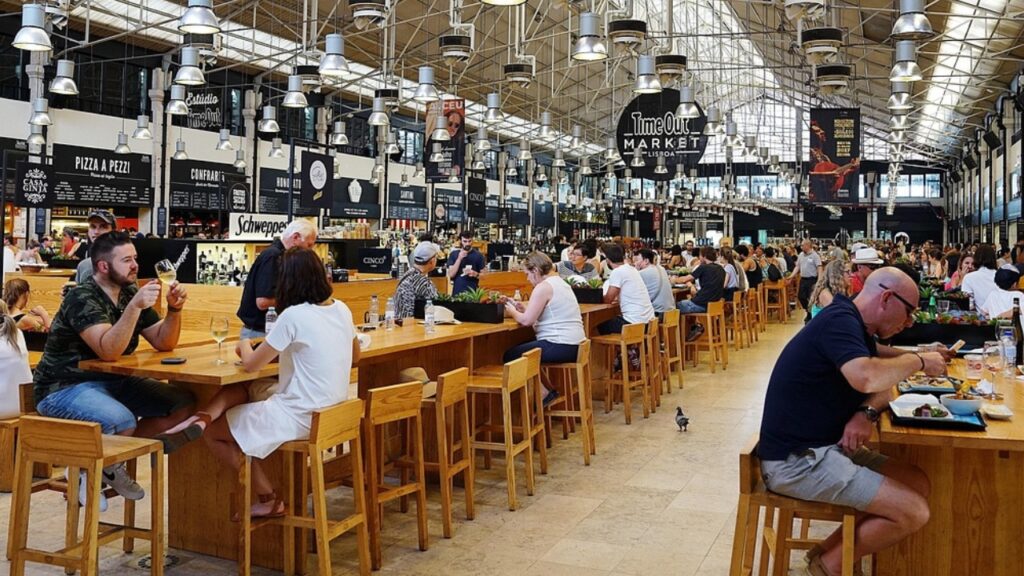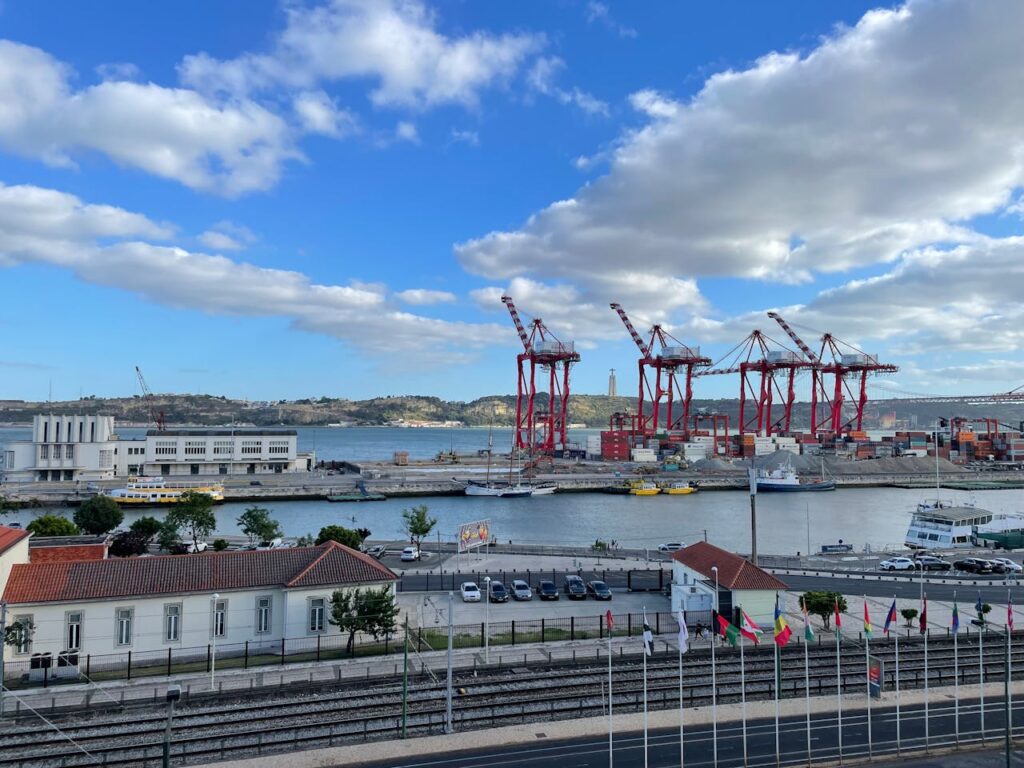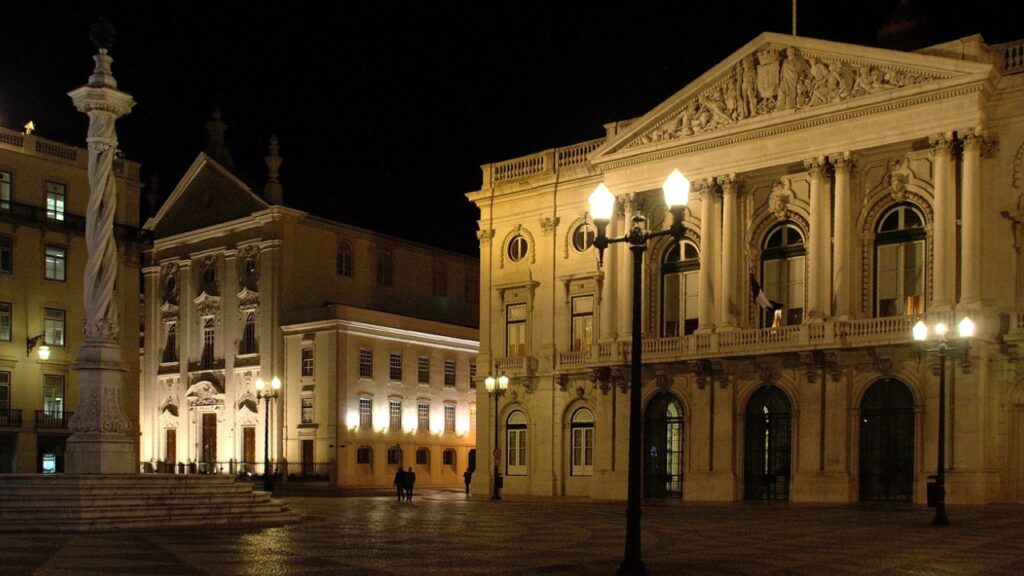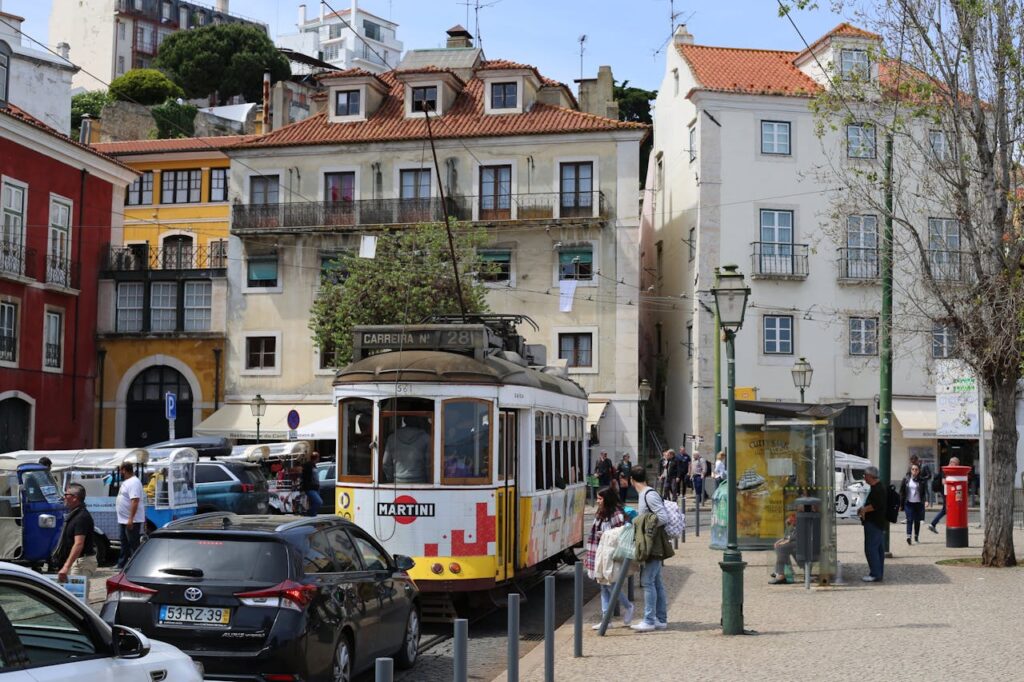We may earn money or products from the companies mentioned in this post. This means if you click on the link and purchase the item, I will receive a small commission at no extra cost to you ... you're just helping re-supply our family's travel fund.

The idea of a life in Portugal is a powerful one. It evokes images of sun-drenched beaches, historic tiled facades, and long, leisurely meals enjoyed with a glass of crisp Vinho Verde. For years, this beautiful country has beckoned to those seeking a richer, more soulful way of life. But moving abroad is more than a permanent vacation. It is a complex decision filled with incredible rewards and real-world challenges. This is an honest look at what a life in Portugal truly entails, helping you decide if this dream is the right one for you.
Pro: An Enviable Quality of Life

Portugal’s allure is deeply rooted in its emphasis on living well. The pace is intentionally slower, prioritizing time with family and friends over the relentless hustle that defines so much of modern life. From the fresh, simple food to the stunning natural landscapes, the culture is oriented around appreciating life’s simple pleasures. If your goal is to trade chronic stress for genuine serenity, you will find that the Portuguese have perfected the art of a balanced and fulfilling life. It’s a tangible, daily reality here.
Con: The Slow Pace Can Be a Challenge

That same relaxed pace that is so appealing on vacation can become a source of profound frustration in daily life. Bureaucracy moves at a glacial speed, appointments can be delayed without explanation, and the sense of urgency you may be used to is often absent. Simple tasks, from opening a bank account to getting a government document processed, can require immense patience and persistence. For those accustomed to hyper-efficiency, adapting to “Portugal time” is a significant and sometimes maddening cultural adjustment.
Pro: The Stunning and Diverse Landscapes

For a relatively small country, Portugal offers a breathtaking variety of scenery. You can surf the powerful Atlantic waves in the west, explore the terraced vineyards and mountains of the Douro Valley in the north, or relax on the sun-kissed golden beaches of the Algarve in the south. The country is a paradise for anyone who loves the outdoors, offering everything from dramatic coastal hikes and rural escapes to lush river valleys, all within a few hours’ drive. The accessibility of this natural beauty is a huge part of its appeal.
Con: The Housing Crisis Is Real

Portugal’s rising popularity has come at a cost. A surge in tourism and foreign investment has created a severe housing crisis, especially in Lisbon, Porto, and the Algarve. Rents have skyrocketed, and finding affordable, quality housing has become a major challenge for both locals and newcomers. To find more reasonable prices, you will almost certainly need to look beyond the major city centers and popular coastal areas, exploring the country’s beautiful, but less-trafficked, interior regions.
Pro: A Generally Affordable Cost of Living

Compared to many other Western European countries and the United States, Portugal still offers a significantly lower cost of living. Everyday expenses like groceries from the local market, public transportation, and a great bottle of wine are quite reasonable. This affordability allows for an exceptionally high quality of life on a more modest budget, freeing up resources for travel, hobbies, and enjoying the country’s rich cultural offerings without constant financial pressure.
Con: Local Salaries Are Low

While the cost of living is a major draw, it is important to understand that local wages are correspondingly low. If you plan to work for a Portuguese company, your salary will likely be much lower than what you might earn for a similar role in North America or Northern Europe. This is why Portugal is especially popular with remote workers, digital nomads, and retirees who earn their income from outside the country. They benefit from the lower costs while not being dependent on the local job market for their primary income.
Pro: The Warm and Welcoming People

The Portuguese are known for their warm, gracious, and generally welcoming nature toward foreigners. They are often patient with newcomers struggling with the language and are proud to share their culture. In smaller towns and villages, you will find a strong sense of community and a genuine friendliness that can make it much easier to feel at home and less like a perpetual outsider. This inherent hospitality is one of the most cherished aspects of life in Portugal and a key reason so many expats fall in love with the country.
Con: You Really Need to Learn Portuguese

While English is widely spoken in major tourist areas and among younger generations, you cannot fully integrate into Portuguese life without learning the language. From navigating government offices and healthcare to building genuine friendships with your neighbors who do not speak English, mastering Portuguese is essential for a deep and meaningful experience. While it is a beautiful language, committing to it is a serious undertaking that should be a non-negotiable part of your moving plan.
Pro: Mild, Sun-Drenched Winters

Portugal’s climate is a major attraction, especially for those looking to escape harsh northern winters. Even in December and January, you can expect many bright, sunny days, particularly in the central and southern regions. The ability to sit outside at a cafe for lunch in the middle of winter is a simple but profound quality-of-life upgrade that never gets old. This mild weather allows for a year-round outdoor lifestyle that is simply not possible in many other parts of the world.
Con: The Damp and Chilly Indoors

That beautiful winter sun can be deceiving. Many Portuguese homes, especially older ones, are not built for cold weather. They often lack central heating and proper insulation, which can make for surprisingly cold and damp interiors during the winter months. You will quickly become familiar with space heaters, electric blankets, and dehumidifiers, as staying comfortable indoors often requires more effort and adaptation than you might expect. It is a common complaint among new expats for a good reason.
Pro: A Safe and Secure Environment

Portugal consistently ranks as one of the safest countries in the world. It boasts a very low rate of violent crime and a general sense of public safety that is palpable in daily life. This allows for a more relaxed and worry-free existence, whether you are walking home late at night in a major city or letting your children play in a local park. This feeling of security is a cornerstone of the high quality of life that so many people seek when they move here.
Con: The Overcrowding of Summer Tourism

The secret is out, and Portugal is a major global tourist destination. While this is great for the economy, it can be a real challenge for residents. In the summer months, popular coastal towns and city centers become incredibly crowded, making simple errands a hassle and transforming tranquil villages into bustling, noisy resorts. If you choose to live in a popular area like the Algarve or central Lisbon, you will need to be prepared to share your beautiful home with millions of visitors every summer.
Pro: An Incredible Food and Wine Culture

Portuguese cuisine is fresh, delicious, and deeply connected to the land and sea. From simple, perfectly grilled fish drizzled with olive oil to hearty regional stews, the food is a celebration of quality ingredients. The country also has a world-class and surprisingly diverse wine scene that extends far beyond its famous port. Best of all, enjoying a fantastic meal with a great bottle of local wine is an affordable, everyday pleasure, not a luxury reserved for special occasions.
Con: Navigating Healthcare Can Be Complex

While Portugal has a public healthcare system, the SNS, it can be overburdened and difficult for expats to navigate initially. Many expats opt for private health insurance to gain faster access to a wider network of doctors and to avoid long wait times for certain procedures and specialist appointments. Understanding the system, registering properly, and deciding between public and private options is a key piece of bureaucratic homework that every potential resident must undertake.
Pro: Straightforward Residency Paths

Portugal offers multiple residency avenues that are comparatively clear and attainable, from D‑type visas for remote workers and entrepreneurs to pathways that can lead to permanent residency and, eventually, citizenship after five years of lawful stay. Clear documentation, proof of income, and health insurance are core requirements, and many applicants pair public services with local legal help to streamline the process.
Con: Paperwork and Queues Test Patience

Appointments for documents like residence permits, NIF, or SNS registration can involve long waits and shifting requirements, especially during peak seasons or in larger cities. Expect multiple visits, notarized translations, and follow‑ups that reward meticulous preparation more than speed. Building extra time into move‑in timelines helps keep stress in check when offices move at their own rhythm.